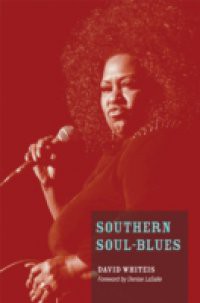Attracting passionate fans primarily among African American listeners in the South, southern soul draws on such diverse influences as the blues, 1960s-era deep soul, contemporary R & B, neosoul, rap, hip-hop, and gospel. Aggressively danceable, lyrically evocative, and fervidly emotional, southern soul songs often portray unabashedly carnal themes, and audiences delight in the performer-audience interaction and communal solidarity at live performances. Examining the history and development of southern soul from its modern roots in the 1960s and 1970s, David Whiteis highlights some of southern soul's most popular and important entertainers and provides first-hand accounts from the clubs, show lounges, festivals, and other local venues where these performers work. Profiles of veteran artists such as Denise LaSalle, the late J. Blackfoot, Latimore, and Bobby Rush--as well as contemporary artists T. K. Soul, Ms. Jody, Sweet Angel, Willie Clayton, and Sir Charles Jones--touch on issues of faith and sensuality, artistic identity and stereotyping, trickster antics, and future directions of the genre. These revealing discussions, drawing on extensive new interviews, also acknowledge the challenges of striving for mainstream popularity while still retaining the cultural and regional identity of the music and of maintaining artistic ownership and control in the age of digital dissemination.

